GENERAL
Fame-chasing Attorney General indicts his former boss & others ..As he runs from $170million judgment debt.
Published
5 years agoon
By
Adubianews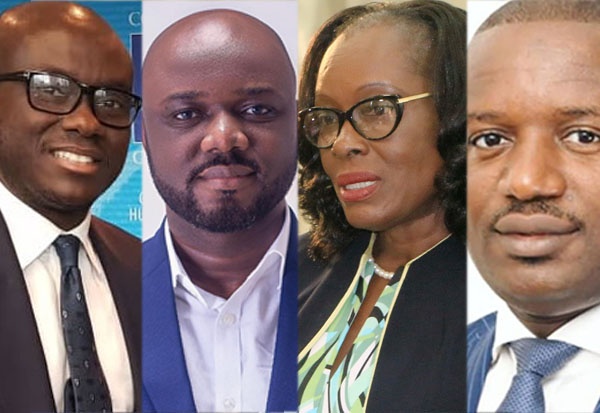
The Attorney General and Minister of Justice, who is busy chasing the fix the country organizers even to the Supreme Court against staging a demonstration, has found a very clever means to hide his shame after sleeping on the job, leading to Ghana incurring a whopping US$170 million judgment debt awarded Ghana Power Generation Company (GPGC) owned by Damian Duncan of Trafigura fame.
The court, had accused officials of the Akufo-Addo government, including Godfred Yeboah Dame for sleeping on the job, and later using the 2020 national elections and COVID-19 pandemic as an excuse for not saving the nation from the US$170 million judgment debt, which could have somehow been avoided or lessened.
In a clear face-saving move, Mr Dame, has hinted of setting the Criminal Investigations Department (CID) of the Ghana Police on elements of the John Mahama administration, including former Power Minister and his Deputy John Jinapor to investigate their roles in negotiating a power purchase agreement and later recommending its abrogation before leaving office in 2017.
Elements within the Akufo-Addo government are supposed to bear the biggest responsibility for eventually abrogating the agreement between Ghana and GPGC in 2018, based on the recommendations of the Mahama administration, but Yeboah Dame, in an interview yesterday on Joy FM ended up indicting his immediate boss Gloria Akuffo, the Solicitor General, Mrs. Helen Akpene Awo Ziwu other State Attorneys, as well as some UK lawyers, as he sought to distant himself from any blame.
He threatened officials of the National Democratic Congress (NDC) administration who signed the agreement with criminal investigation and prosecution obviously with the intention of silencing them from criticizing the Akufo-Addo government’s poor handling of the case in an international arbitration in a Commercial Court in London, after they terminated the contract.
But Mr Benjamin Boakye, Executive Director of the Africa Center for Energy Policy (ACEP) rebutted, saying that officials of both governments, NPP and NDC, should be blamed and that elements in the current Akufo-Addo/ NPP government cannot run from blame. He revealed when the NPP took over, Ghana’s liability was about US$18 million.
But speaking on Accra-based Joy FM, the Attorney General mentioned that the NDC officials who entered the agreement namely; Dr. Kwabena Donkor – the former Minister of Power, as well as his deputy, John Jinapor, were the ones who recommended the termination of the contract under their tenure before leaving, adding that Boakye Agyarko and Gloria Akufo-Akuffo, only acted on the NDC recommendations.
It has, however, emerged that although the NDC administration recommended the termination of the GPGC deal before leaving office, it took a long time to be carried out by the New Patriotic Party (NPP) administration.
The company went to court and won the case because they had taken certain steps pursuant to the agreement which had committed Ghana more to the agreement.
It further emerged that the ministers had made written promises to assure the company that the deal was going to be implemented, hence the judgement debt against Ghana.
Surprisingly, after taking over from Gloria Akuffo, as head of government’s legal team, Yeboah Dame, had pleaded for time to appeal the judgment debt, but he and others rather went to sleep and the court threw out the case citing delays.
The Commercial Court in London, refused to allow Ghana challenge the decision to award the US$134 million in favour of a power contractor, ruling that national elections and COVID-19 pandemic, did not make the state’s delay reasonable.
Mr Dame is saying, he will prosecute the former appointees of NDC for recommending the termination of the deal. This is because a report by the committee constituted in September 2016, revealed that the agreement was not properly made resulting in excessive power supply.
Mr Dame blamed the signatories to the agreement for the $170 million judgement debt that the government of Ghana has been instructed to pay to GPGC, by a Commercial Court in London, for unlawful termination of contract.
He said, “The fact as borne out by the PPA committee’s report was that the agreement, together with other agreements, had resulted in such excessive power supply to the state. The state was going to lose $586m per annum and a cumulative cost of about $7.6billion dollars between 2013 and 2018.”
“So I think that when it comes to financial loss, it is so clear in my mind that the responsibility lies clearly with those who entered into the agreement. The basic point is that the entry into this transaction was unnecessary. The entry into this transaction was what resulted in financial loss to the state.”
He stated that he is putting some documents together to request for a formal enquiry into the conduct of the public officers who handled the agreement.
“I, on account of all of this, am going to write a formal complaint requesting an enquiry by the CID into the conduct of the public officers who acted in the manner which resulted in the signing of an agreement which resulted in financial loss to the state.”
“I think that first and foremost the entry into the agreement itself was wrong. There was no justification, because their own committee determined that the agreement was going to result in excessive power.”
His comment comes after a London-based United Nations Commission on International Trade Law tribunal issued its final award, ordering the government of Ghana to pay a contractually defined “early termination payment” of more than US$134.3 million plus interest and costs.
The agreement between the government of Ghana and GPGC, an independent power producer, was terminated in 2018.
“The committee set up by the NDC in 2016 – against the background of a recognition that there were so many PPAs entered into by the NDC administration, and therefore those agreements were going to result in excessive capacity development, as it was termed – came to a conclusion that this agreement had to be terminated. The committee singled out this particular agreement for termination.”
But, Ranking Member on Parliament’s Energy Committee, John Jinapor, believes the former Minister of Energy who served during President Akufo-Addo’s first term, should be blamed for causing the $170million to loss the state.
“The government didn’t take the matter seriously. First of all, I hold the view that it was wrong to have terminated the agreement the way and manner in which this government went about it.”
“Clearly we could have saved more than US$150 million if this government had listened to good counsel. But the Minister decided that he would cancel it unilaterally and today, the state of Ghana is asked to pay about US$170 million. That is a whopping amount and it is a colossal amount.” he said.
The ACEP boss said, “It is not only a question about those who signed the contract, but also those who could have salvaged the situation,” adding “It’s not about taking a piece of the issue for political gain” insisting that the NPP officials are neck-deep in the financial loss.
He said, while the former NDC officials extended the agreement which they later on, recommended the termination, the NPP elements failed to quickly act on the recommendation which could have saved the nation lots of money compared to the current debt.
Benjamin Boakye, revealed that at the time the recommendation was made, Ghana’s liability was about US$18 million.
However, the NPP government carelessly failed to act on the recommendations with some elements within the corridors of power assuring the GPGC officials that they will work with them; leaving the doors open for the judgment debt to balloon to US$170 million.
Mr Boakye insists, both parties cannot escape from blame and therefore must be held accountable for causing financial loss to the state.
But when asked whether the government was going to cough up the US$170 million judgment debt, the Attorney General, answered that the government is in negotiation to break down the amount.
He, however, sought to take himself out from blame with a cunning excuse that he was not appointed substantive Attorney General and Minister of Justice at the time the London Court had delivered judgment, although he was in fact, a deputy Attorney General throughout the hearing of the case.
Mr Dame was rather pointing accusing fingers at past NDC appointees, his immediate boss, Ms Gloria Akuffo, the Solicitor General and others for the judgment debt.
He himself, did not take any of the blame, but rather sought to rubbish the court’s claim that the government has used the COVID-19 pandemic for the late filing of the Appeal which was thrown out.
You may like
-


Asiedu Nketia Uses NDC Thank You Tour to Collect Feedback on Government
-
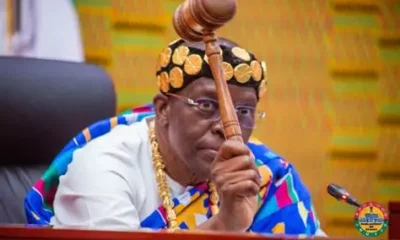

Speaker Urges Executive to Grant Parliament Permanent Land
-
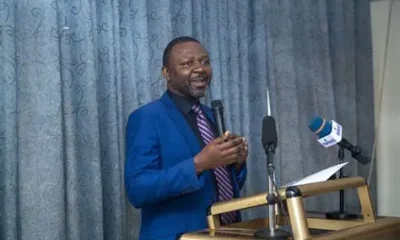

Finance Expert Warns Cocoa Reforms Could Worsen COCOBOD Debt
-
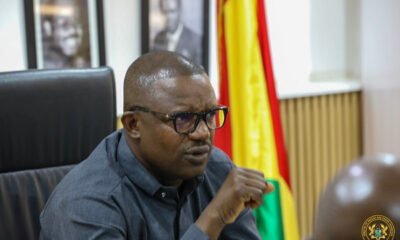

Jinapor Swears In New VRA Resettlement Trust Fund Board
-
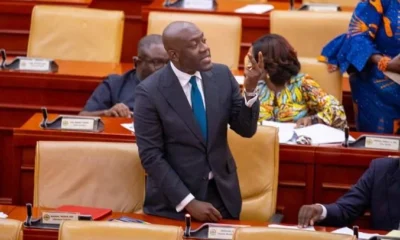

Minority Demands Dismissal of COCOBOD CEO Over Cocoa Price Crisis
-


OSP Questions Baba Jamal Over Alleged Vote-Buying in Ayawaso East Primary
-


Police Arrest Woman Over Fire Incident at Alpha Hour Founder’s Church
-


NRSA: Commercial Tricycles Still Illegal Under Ghana’s Road Traffic Laws
-


NADMO Launches Rainy Season Safety Campaign in Fanteakwa South Markets

















